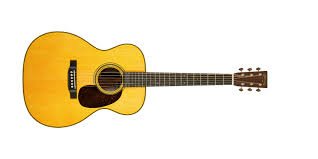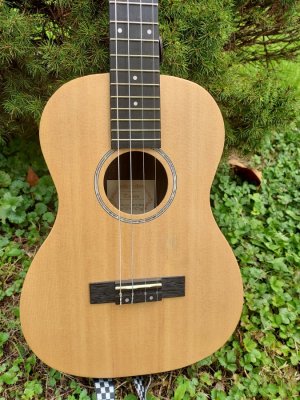Before Clapton, The Kingston Trio kicked off a huge demand for Martin Guitars.
From the Martin Guitar Company's Newsletter The Sounding Board:
"This Year [2002] Marks the 45th Aniversary of The Kingston Trio, one of the most
beloved music groups.
"In 1957 they were just three college kids who loved to sing together and have
fun. Yet in less than a year, Bob Shane, Nick Reynolds and Dave Guard would
revolutionize popular music--and the acoustic guitar industry along with it....
"Using only acoustic guitars and banjos, they
literally revolutionized popular music, reawakening America to its own
rich heritage, paving the way for a broader acceptance of bluegrass,
blues, country and other indigenous American musics.
"...As the popularity of the Trio grew, so did the demand for Martin guitars.The
Kingston Trio played martin guitars exclusively, and every best-seller Trio album
prominently displayed the group with their Martin instruments. The company
finally had to build a new factory in Nazareth to meet the demand for Martin
guitars fueled by The Kingston Trio frenzy."
1997, 40th Anniversary Limited Edition Instrument Set
"To commemorate The Kingston Trio's lasting contribution to folk and
acoustic music, and in gratitude for their unswerving loyalty to Martin
instruments throughout the years, C. F. Martin & Co. is proud to offer a
special Kingston Trio Limited Edition consisting of 40 sets of three
instruments each. Each set includes a special Kingston Trio D-28 guitar,
a custom 0-18T Tenor guitar, and a Vega [Owned by Martin 70s - 80s]
long neck banjo-the instrumentation used by the Trio."
2002, 45th Anniversary, Bob Shane Signature Guitar
"Martin Celebrates Kingston Trio 45th Anniversary
With D-28KTBS Bob Shane Signature Edition Guitar."


